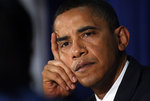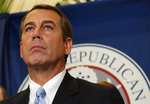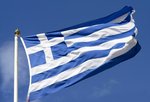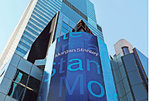EmpireGlobalfx
Active member
- Messages
- 212
- Likes
- 0
Exclusive: EU calls emergency meeting as crisis stalks Italy
European Council President Herman Van Rompuy has called an emergency meeting of top officials dealing with the euro zone debt crisis for Monday morning, reflecting concern that the crisis could spread to Italy, the region's third largest economy.
European Central Bank President Jean-Claude Trichet will attend the meeting along with Jean-Claude Juncker, chairman of the region's finance ministers, European Commission President Jose Manuel Barroso and Olli Rehn, the economic and monetary affairs commissioner, three official sources told Reuters.
Van Rompuy's spokesman Dirk De Backer said: "It's a coordination, not a crisis meeting." He added that Italy would not be on the agenda and declined to say what would be discussed.
However, two official sources told Reuters that the situation in Italy would be discussed. The talks were organized after a sharp sell-off in Italian assets on Friday, which has increased fears that Italy, with the highest sovereign debt ratio relative to its economy in the euro zone after Greece, could be next to suffer in the crisis. A second international bailout of Greece will also be discussed, the sources said.
The spread of the Italian 10-year government bond yield over benchmark German Bunds hit euro lifetime highs around 2.45 percentage points on Friday, raising the Italian yield to 5.28 percent, close to the 5.5-5.7 percent area which some bankers think could start putting heavy pressure on Italy's finances.
Shares in Italy's biggest bank, Unicredit Spa, fell 7.9 percent on Friday, partly because of worries about the results of stress tests of the health of European banks that will be released on July 15. The leading Italian stock index sank 3.5 percent.
The market pressure is due partly to Italy's high sovereign debt and sluggish economy, but also to concern that Prime Minister Silvio Berlusconi may be trying to undermine and even push out Finance Minister Giulio Tremonti, who has promoted deep spending cuts to control the budget deficit.
"We can't go on for many more days like Friday," a senior ECB official said. "We're very worried about Italy."
Monday's emergency meeting will precede a previously scheduled gathering of the euro zone's 17 finance ministers to discuss how to secure a contribution of private sector investors to the second bailout of Greece, as well as the results of the stress tests of 91 European banks.
GREECE
Greece is already receiving 110 billion euros ($157 billion) of international loans under a rescue scheme launched in May last year but this has failed to change market expectations that it will eventually default on its debt.
Senior euro zone officials worry that progress toward a second Greek bailout, which would also total around 110 billion euros, is not being made quickly enough and that the delay is poisoning investors' confidence in weak economies around the region.
"We need to move on this in the next couple of weeks. It's not a case of waiting until late August or early September as Germany is saying. That's too late and markets will make us pay for it," a top euro zone official told Reuters on Saturday.
German officials insist they too want to put together the second Greek bailout as quickly as possible, but the private sector's contribution is proving to be a major sticking point.
Germany, the Netherlands, Austria and Finland are determined that banks, insurers and other private holders of Greek government bonds should bear some of the costs of helping Athens. But more than two weeks of negotiations with bankers represented by the Institute of International Finance (IIF), a lobby group, have made next to no progress on agreeing a formula acceptable to all sides.
Initially talks focused on a complex French plan for private creditors to roll over up to 30 billion euros of Greek debt, buying new bonds as their existing ones matured. Around half of proceeds from Greek bonds maturing before the end of 2014 would be rolled over into very long-term debt while 20 percent would be put into a "guarantee fund" of AAA-rated securities.
But as that plan has floundered, Berlin has revived a proposal to swap Greek bonds for longer-dated debt that would extend maturities by seven years. Proposals to buy back Greek bonds and retire them have also been floated.
In a buy-back, the euro zone's bailout fund, the European Financial Stability Facility, might buy Greek bonds from the market, or the EFSF might lend Greece money to buy bonds. However, these schemes would require further changes to the EFSF's rules and would therefore have to go through national parliaments, an official source said.
European Council President Herman Van Rompuy has called an emergency meeting of top officials dealing with the euro zone debt crisis for Monday morning, reflecting concern that the crisis could spread to Italy, the region's third largest economy.
European Central Bank President Jean-Claude Trichet will attend the meeting along with Jean-Claude Juncker, chairman of the region's finance ministers, European Commission President Jose Manuel Barroso and Olli Rehn, the economic and monetary affairs commissioner, three official sources told Reuters.
Van Rompuy's spokesman Dirk De Backer said: "It's a coordination, not a crisis meeting." He added that Italy would not be on the agenda and declined to say what would be discussed.
However, two official sources told Reuters that the situation in Italy would be discussed. The talks were organized after a sharp sell-off in Italian assets on Friday, which has increased fears that Italy, with the highest sovereign debt ratio relative to its economy in the euro zone after Greece, could be next to suffer in the crisis. A second international bailout of Greece will also be discussed, the sources said.
The spread of the Italian 10-year government bond yield over benchmark German Bunds hit euro lifetime highs around 2.45 percentage points on Friday, raising the Italian yield to 5.28 percent, close to the 5.5-5.7 percent area which some bankers think could start putting heavy pressure on Italy's finances.
Shares in Italy's biggest bank, Unicredit Spa, fell 7.9 percent on Friday, partly because of worries about the results of stress tests of the health of European banks that will be released on July 15. The leading Italian stock index sank 3.5 percent.
The market pressure is due partly to Italy's high sovereign debt and sluggish economy, but also to concern that Prime Minister Silvio Berlusconi may be trying to undermine and even push out Finance Minister Giulio Tremonti, who has promoted deep spending cuts to control the budget deficit.
"We can't go on for many more days like Friday," a senior ECB official said. "We're very worried about Italy."
Monday's emergency meeting will precede a previously scheduled gathering of the euro zone's 17 finance ministers to discuss how to secure a contribution of private sector investors to the second bailout of Greece, as well as the results of the stress tests of 91 European banks.
GREECE
Greece is already receiving 110 billion euros ($157 billion) of international loans under a rescue scheme launched in May last year but this has failed to change market expectations that it will eventually default on its debt.
Senior euro zone officials worry that progress toward a second Greek bailout, which would also total around 110 billion euros, is not being made quickly enough and that the delay is poisoning investors' confidence in weak economies around the region.
"We need to move on this in the next couple of weeks. It's not a case of waiting until late August or early September as Germany is saying. That's too late and markets will make us pay for it," a top euro zone official told Reuters on Saturday.
German officials insist they too want to put together the second Greek bailout as quickly as possible, but the private sector's contribution is proving to be a major sticking point.
Germany, the Netherlands, Austria and Finland are determined that banks, insurers and other private holders of Greek government bonds should bear some of the costs of helping Athens. But more than two weeks of negotiations with bankers represented by the Institute of International Finance (IIF), a lobby group, have made next to no progress on agreeing a formula acceptable to all sides.
Initially talks focused on a complex French plan for private creditors to roll over up to 30 billion euros of Greek debt, buying new bonds as their existing ones matured. Around half of proceeds from Greek bonds maturing before the end of 2014 would be rolled over into very long-term debt while 20 percent would be put into a "guarantee fund" of AAA-rated securities.
But as that plan has floundered, Berlin has revived a proposal to swap Greek bonds for longer-dated debt that would extend maturities by seven years. Proposals to buy back Greek bonds and retire them have also been floated.
In a buy-back, the euro zone's bailout fund, the European Financial Stability Facility, might buy Greek bonds from the market, or the EFSF might lend Greece money to buy bonds. However, these schemes would require further changes to the EFSF's rules and would therefore have to go through national parliaments, an official source said.







